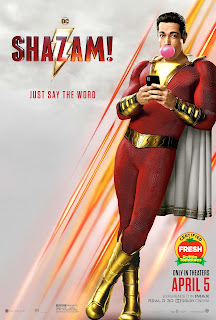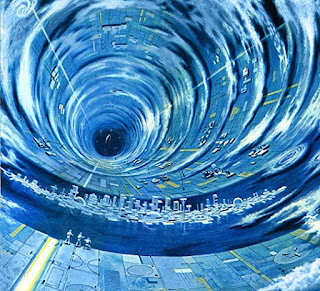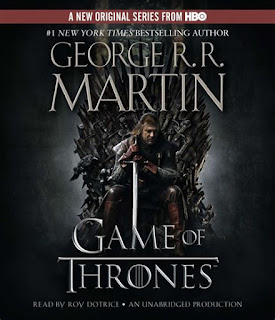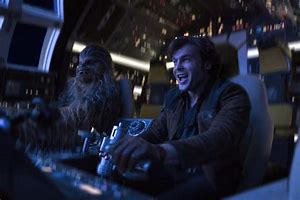"Children look like burnt paper. Black. Not moving. And then the blast wave hit them, and then they fly apart like leaves."
Wow. Yeah, those are pretty downer first lines, which I guess you'd expect from a movie called Terminator: Dark Fate.
The good news is, Sarah Conner (played once again by the fantastic Linda Hamilton), really did manage to stop Judgement Day, and the destruction of civilization by a rogue artificial intelligence called Skynet.
The bad news is, it only led to an entirely different destruction of civilization by a rogue artificial intelligence--called Legion. Now an entirely different terminator, the Rev-9 (played by Gabriel Luna, the memorable Ghost Rider on "Agents of "SH.I.E.L.D."), has arrived in 2019 to kill a young Mexican woman, Dani (Natalia Reyes), because ... reasons.
Luckily, another savior from the future has also appeared: An augmented human named Grace (Mackenzie Davis). The beats seem similar to other Terminator movies, especially the second one, which this movie is a direct sequel of. (Apparently the others happened in a different timeline, which for this franchise is easy to believe). We establish the happy young Dani and her family, Rev-9 shows up, Grace drags Dani to safety, big chase begins.
And then, when all seems lost, we get a bad ass appearance by the bad ass Sarah Conner. And how did Sarah know where to find this new threat? That's the next mystery to be solved, and Sarah isn't going to be at all happy with the solution.
What's that, you say? Arnold what's-his-name? Yeah, he shows up eventually, as a T-800 that's just a little ... different ... from the previous ones.
For the first half of the movie, though, it's an all-girl-action-hour, with three bad-ass women saving and occasionally threatening each other, kicking other ass, and not even bothering with the name taking. I heard one critic complain about the movie being "woke". Yeah, I suppose so. But if I had to go into a fight, I'd take these three along with me, any day.
My biggest complaint with Terminator: Dark Fate is that it seems to make many of the events of the first two movies pointless. Sarah and her family saved the future, but--oops--it's going to be destroyed, anyway. My second biggest complaint is that some of the action sequences were a bit long, but they certainly were attention grabbing.
Rev-9 is a new kind of Terminator, with one particular new skill that's an especially cool development, and its played well by Luna. There are no real complaints about a skilled cast, who I'm sure had to do a lot of emoting toward a green screen. The story is no great departure from previous Terminator movies, but there were some nice twists along the way. It's not the best Terminator movie--that would be the second one--but it's far from the worst, and well worth seeing.
 |
| There's something about women with rocket launchers. |
My rating:
Entertainment Value: 3 1/2 out of 4 M&Ms. A scene not long after Sarah appears bummed me out, but overall it was lots of fun.
Oscar Potential: 1 out of 4 M&Ms. I don't think so. Loved the special effects, but who doesn't have good special effects, these days?

























